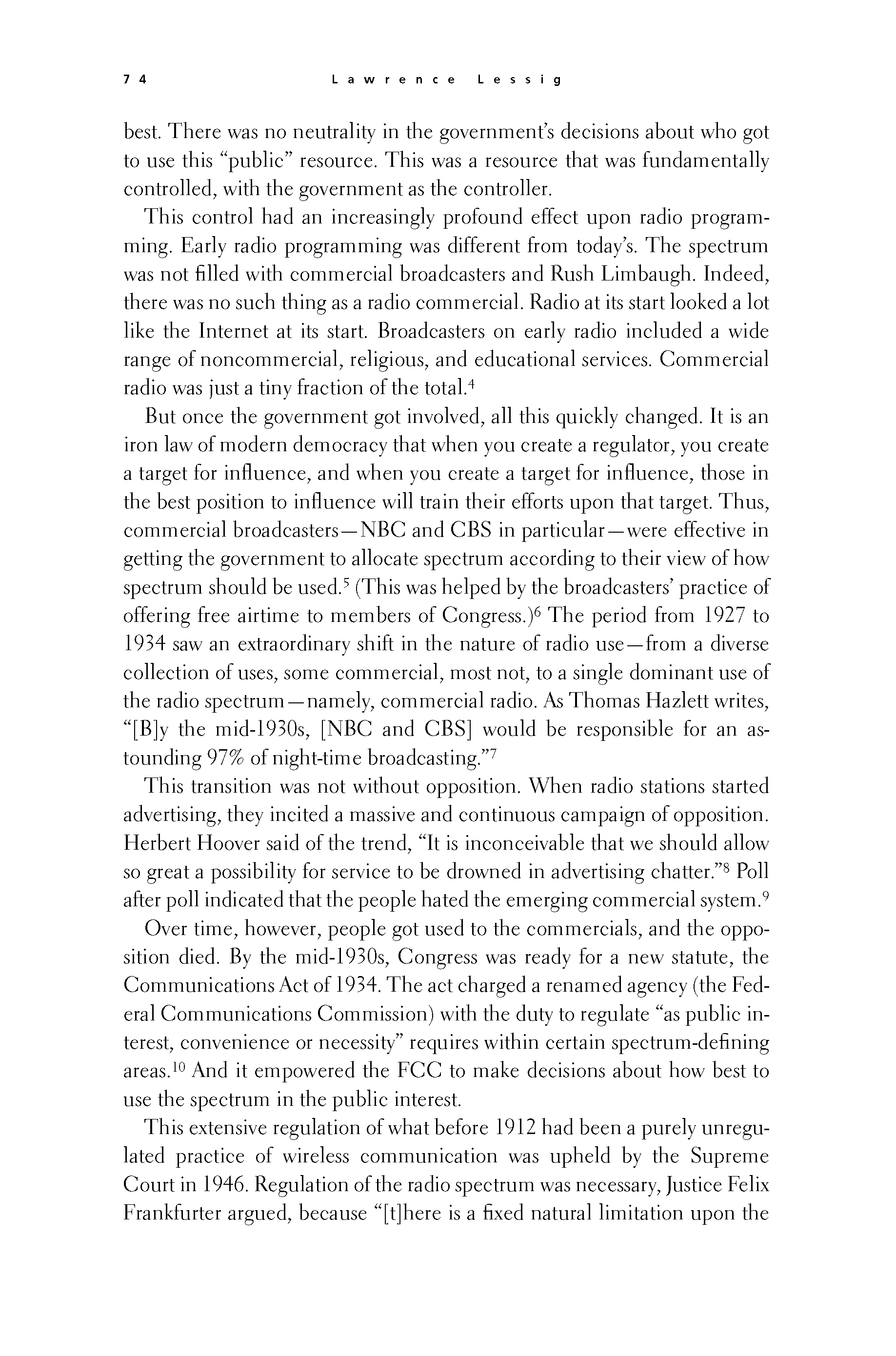 p073 _
-chap- _
toc-1 _
p074w _
toc-2 _
+chap+ _
p075
p073 _
-chap- _
toc-1 _
p074w _
toc-2 _
+chap+ _
p075
best. There was no neutrality in the government's decisions about who got
to use this "public" resource. This was a resource that was fundamentally
controlled, with the government as the controller.
This control had an increasingly profound effect upon radio program-
ming. Early radio programming was different from today's. The spectrum
was not filled with commercial broadcasters and Rush Limbaugh. Indeed,
there was no such thing as a radio commercial. Radio at its start looked a lot
like the Internet at its start. Broadcasters on early radio included a wide
range of noncommercial, religious, and educational services. Commercial
radio was just a tiny fraction of the total.[5-4]
But once the government got involved, all this quickly changed. It is an
iron law of modern democracy that when you create a regulator, you create
a target for influence, and when you create a target for influence, those in
the best position to influence will train their efforts upon that target. Thus,
commercial broadcasters -- NBC and CBS in particular -- were effective in
getting the government to allocate spectrum according to their view of how
spectrum should be used.[5-5] (This was helped by the broadcasters' practice of
offering free airtime to members of Congress.)[5-6] The period from 1927 to
1934 saw an extraordinary shift in the nature of radio use -- from a diverse
collection of uses, some commercial, most not, to a single dominant use of
the radio spectrum -- namely, commercial radio. As Thomas Hazlett writes,
"[B]y the mid-1930s, [NBC and CBS] would be responsible for an as-
tounding 97% of night-time broadcasting."[5-7]
This transition was not without opposition. When radio stations started
advertising, they incited a massive and continuous campaign of opposition.
Herbert Hoover said of the trend, "It is inconceivable that we should allow
so great a possibility for service to be drowned in advertising chatter."[5-8] Poll
after poll indicated that the people hated the emerging commercial system.[5-9]
Over time, however, people got used to the commercials, and the oppo-
sition died. By the mid-1930s, Congress was ready for a new statute, the
Communications Act of 1934. The act charged a renamed agency (the Fed-
eral Communications Commission) with the duty to regulate "as public in-
terest, convenience or necessity" requires within certain spectrum-defining
areas.[5-10] And it empowered the FCC to make decisions about how best to
use the spectrum in the public interest.
This extensive regulation of what before 1912 had been a purely unregu-
lated practice of wireless communication was upheld by the Supreme
Court in 1946. Regulation of the radio spectrum was necessary, Justice Felix
Frankfurter argued, because "[t]here is a fixed natural limitation upon the
[[74]]
p073 _
-chap- _
toc-1 _
p074w _
toc-2 _
+chap+ _
p075